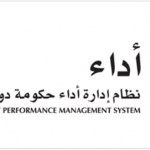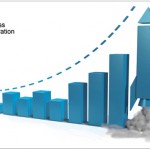Striving for energy efficiency in the UAE

Energy efficiency will be a growing challenge, as stated in the 2015 UAE State of Energy Report, since population and economic growth and high consumption rates make servicing citizens a strenuous task.
The popular belief tends to be that the United Arab Emirate’s speedy economic growth and development stems from its electricity framework, which receives its power from oil. However, the truth is that 90% of its electricity is generated from the use of natural gas, rather than oil.
Despite the fact that the natural gas reserves in the UAE are estimated to be the 5th largest on the planet, the country has also been importing gas since 2007. Presently, the primary resource mix is, for the biggest part, made out of natural gas – 71%, and oil – 28%, with 100% of power being gas-generated.

Based on the UAE’s annual statistics reports, released by the UAE Ministry of Energy, the increasing demand for energy and water is a defining trait of the energy sector, calling for an equivalent increase in power generation. Between 2008 and 2014, existing electricity capacity grew by 45%, with Dubai increasing capacity by 44.6% and Abu Dhabi by 61.3%. In 2014, the total existing capacity in the country reached 28,829 megawatts (MW).
Energy demand has increased substantially, on par with the country’s GDP, in the period between 2008 and 2014. Overall, the total electricity used within the country reached 111,685 GWh in 2014. Peak loads grew by 41% between 2008 and 2014. And this trend of energy demand and consumption will continue, unless counteracted. The majority of opportunities for these efficiency improvements lie in the commercial and residential sector buildings, the largest energy consumers.
In order to achieve a sustainable and diversified economy, in January 2014, the UAE government announced a seven-year National Agenda. The agenda’s focus is on improving the quality of air, preserving water resources, increasing the contribution of clean energy and implementing green growth plans. In general, the targets of the National Agenda are as follows:
I) To be the first government worldwide that uses smart services, setting the standard for other nations around the world;
II) To direct all schools and curricula towards smart learning and increase investment in pre-school education;
III) To make the UAE the safest place on earth, and reduce the response time to emergency calls to a record time of four minutes;
IV) To increase the per capita gross income by 65% over the next seven years;
V) To become the a world leading figure in land, sea and air infrastructure and the world’s first in streamlined business;
VI) To decrease the housing eligibility waiting period, to two years from the date of application;
VII) To increase Emiratisation in the private sector 10 times. If motivation is not enough, the government will enforce new measures to increase Emiratisation.
For the Ministry of Energy, this agenda means that the power sector targets will need to be reached by generating 24% of energy requirements through clean energy sources, while simultaneously reducing its per capita greenhouse gas emissions and reaching a 5 tonnes/capita energy capacity by 2021.
The UAE government aims to reach its objectives on time and track the progress of its National Agenda initiatives through the use of Key Performance Indicators and targets.

These innovative solutions, which are necessary for the creation of a sustainable and diversified economy and a sustainable power source, will also aid the UAE in becoming a competitive knowledge economy.
After all, in order to sustainably generate water and energy for residential consumption, there will be a need for world-class infrastructure and technology. As such, in time, the quality of life in the UAE will naturally improve even more, due to the availability of energy-efficient housing and transport.
Image sources:

Tags: Energy performance, Government performance, Performance in UAE, Strategic objectives





